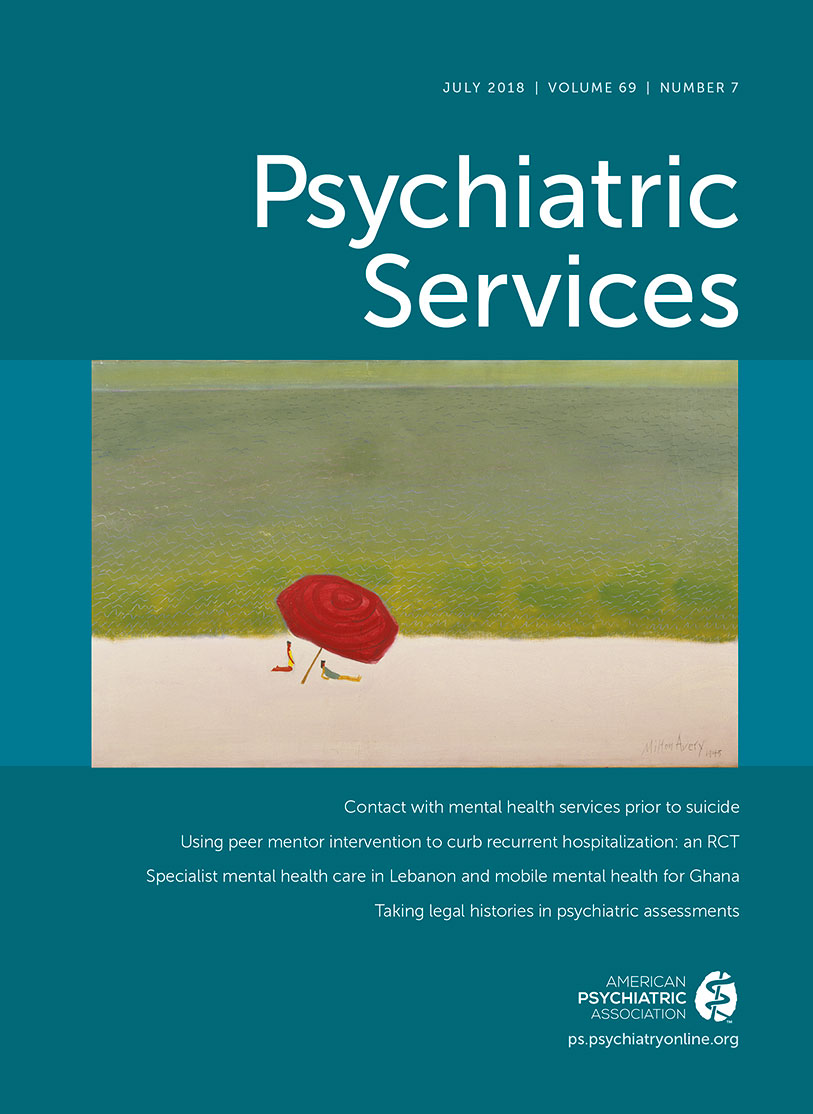Outcomes of a Peer Mentor Intervention for Persons With Recurrent Psychiatric Hospitalization
Abstract
Objective:
This article presents findings from a randomized controlled trial of a peer support mentorship intervention designed for individuals with serious mental illness and frequent, recurrent psychiatric hospitalizations.
Methods:
Seventy-six individuals who were diagnosed as having a major psychotic or mood disorder and who had at least two psychiatric hospitalizations or more than three emergency department visits within the 18 months prior to the index hospitalization participated in this trial. Participants were randomly assigned to one of two conditions: standard care or a peer mentor plus standard care. Substance use, psychiatric symptoms, psychosocial functioning, and hope were assessed at baseline and at three and nine months after hospital discharge.
Results:
Participants assigned to the peer mentor condition reported significantly greater reductions in substance use and psychiatric symptoms and greater improvements in functioning compared with participants assigned to standard care. Moreover, participants in the peer mentor program remained out of the hospital for significantly longer periods of time compared with those assigned to standard care.
Conclusions:
Peer services for those who are hospitalized recurrently hold promise as an effective component of behavioral health care for persons with serious mental illnesses.




